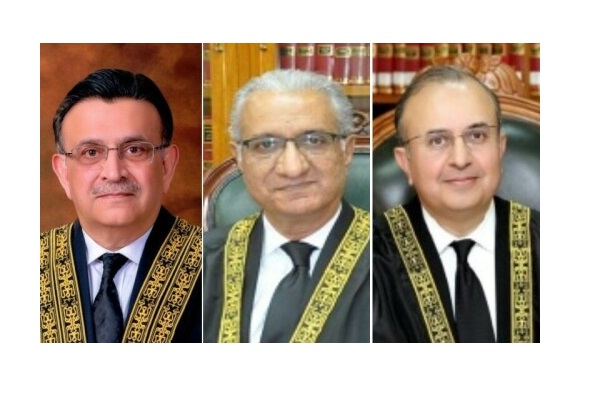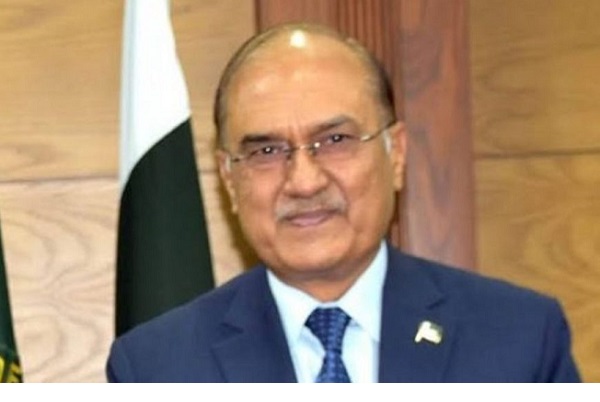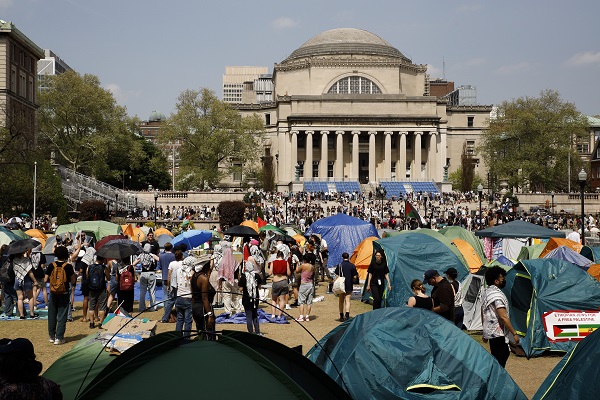ISLAMABAD: A 50-member business and official delegation from the Kingdom of Saudi Arabia (KSA) is due on Sunday (May 5)
ISLAMABAD: The Supreme Court ordered on Friday to restore corruption cases against public representatives. The reserved verdict was announced by a three-member bench comprising outgoing Chief Justice of Pakistan (CJP) Umar Ata Bandial, Justice Ijazul Ahsan and Justice Syed Mansoor Ali Shah on PTI Chairman Imran Khan’s 2022 petition challenging the amendments to the National Accountability Ordinance (NAO), as it struck down some sections of the amendments made to the country’s accountability laws last year by the previous coalition government.
It was a 2-1 verdict, with Justice Bandial and Justice Ahsan declaring Mr Khan’s plea to be maintainable and Justice Shah issuing a dissenting note, arguing that if parliament could enact the NAB law, it could also repeal or amend it.
The 55-page detailed judgement restored all inquiries, investigations and references that were disposed of based on the now struck-down sections of NAO to their positions before the amendments, and thus deemed to be pending before relevant forums.
The judgement was announced in Courtroom No. 1 by outgoing CJP Bandial, a day before his retirement.
Earlier this month, he said that the court would soon announce a “short and sweet” verdict of the case.
In the judgement, the Supreme Court also ordered NAB and all accountability courts to go ahead with the restored proceedings according to the law.
“The NAB and/or all other fora shall forthwith return the record of all such matters to the relevant fora and in any event not later than seven days from today, which shall be proceeded with in accordance with law from the same stage these were at when the same were disposed of/closed/returned,” the judgement said.
It held Imran Khan’s petition maintainable on account of violating Article 9 (security of person), Article 14 (inviolability of dignity of man), Article 24 (protection of property rights) and Article 25 (equality of citizens) of the Constitution and for affecting the public at large because the unlawful diversion of state resources from public development projects to private use leads to poverty, declining quality of life and injustice.
Prominent politicians who allegedly benefited from the amendments and now may face cases again include former president Asif Ali Zardari, former prime ministers Nawaz Sharif and Shehbaz Sharif, Maulana Fazlur Rehman, Faryal Talpur, Khawaja Asif, Khawaja Saad Rafique, Rana Sanaullah, Javed Latif, Makhdoom Khusro Bakhtiar, Amir Mehmood Kayani, Akram Durrani, and Saleem Mandviwalla.
Friday’s judgement explained that Section 3 of the Second Amendment pertaining to Section 5(o) of NAO sets the minimum pecuniary threshold of NAB at Rs500 million and Section 2 of the 2022 amendments pertaining to Section 4, which limits the application of the ordinance by creating exceptions for public office-holders, are declared void ab initio.
Likewise, Section 3 of the Second Amendment and Section 2 of the 2022 amendments pertaining to Section 5(o) and Section 4 of the NAO were declared to be valid.
Under this provision, the persons in the service of Pakistan have been omitted from the NAO since these persons can still be tried under the Prevention of Corruption Act 1947 for the offence of corruption and corrupt practices even if they stand excluded from the jurisdiction of NAB.
The phrase “through corrupt and dishonest means” inserted in Section 9(a)(v) of the NAB ordinance along with its Explanation II was also struck down from the date of commencement of the First Amendment for references filed against elected holders of public office. Similarly, Section 14 was also omitted, which allowed the accountability court to draw different evidentiary presumptions against the accused.
Likewise, Section 21(g) of the NAB ordinance was restored from the date of commencement of the First Amendment. The amendment has omitted this provision, which allowed evidentiary material transferred by a foreign government through Mutual Legal Assistance (MLA) as evidence. Consequently, Sections 10 and 14 of the First Amendment are declared void.
Therefore, “all orders passed by the NAB and/or the Accountability Courts placing reliance on the above Sections are declared null and void and of no legal effect”, the judgement said.
You May Also Like
ISLAMABAD: Former defence secretary Lt-Gen (r) Naeem Lodhi has proposed an end to incendiary discourse against institutions,
NEW YORK: Columbia University began suspending student demonstrators on Monday after they defied an ultimatum to disperse.






